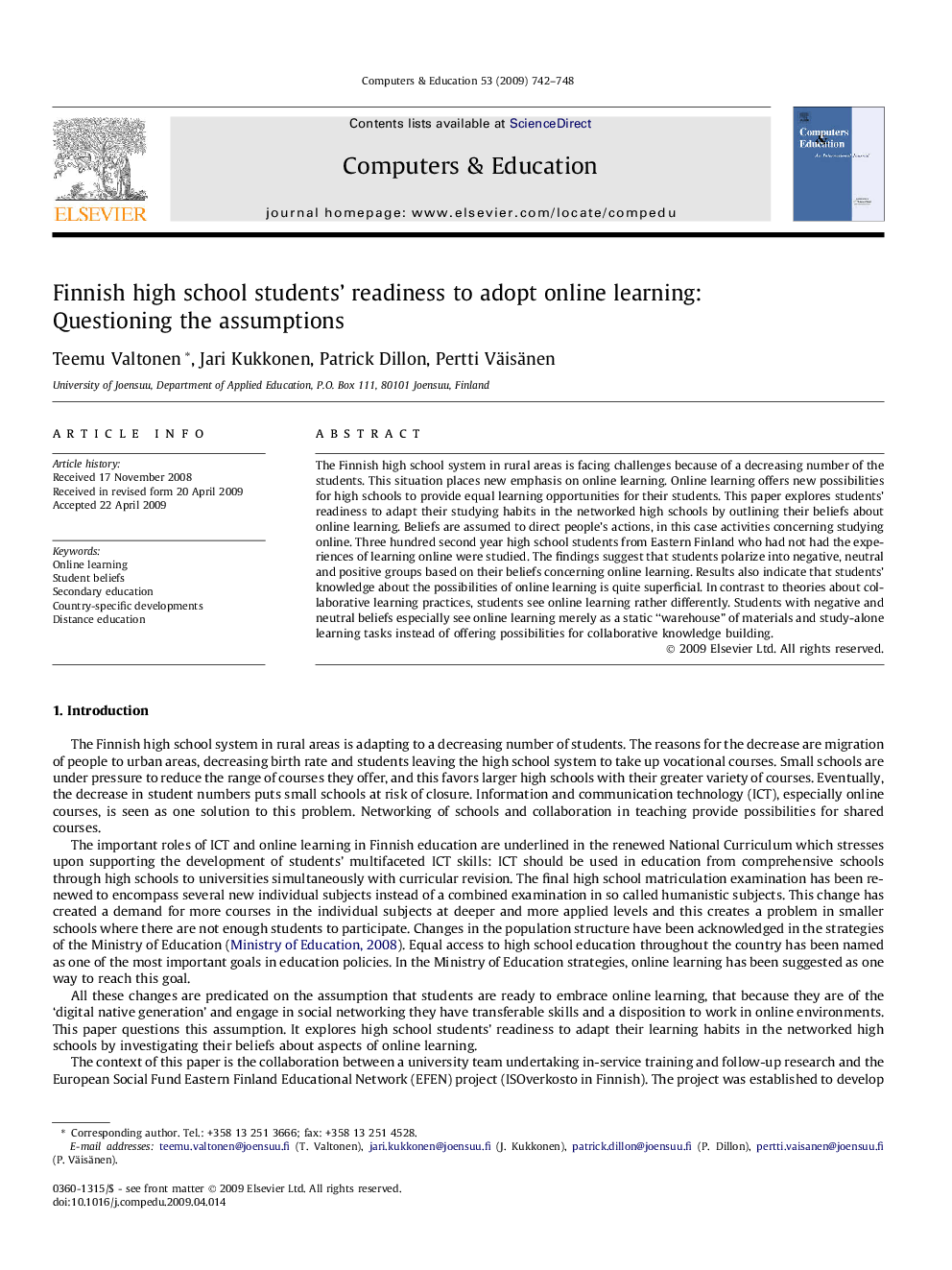| Article ID | Journal | Published Year | Pages | File Type |
|---|---|---|---|---|
| 349723 | Computers & Education | 2009 | 7 Pages |
The Finnish high school system in rural areas is facing challenges because of a decreasing number of the students. This situation places new emphasis on online learning. Online learning offers new possibilities for high schools to provide equal learning opportunities for their students. This paper explores students’ readiness to adapt their studying habits in the networked high schools by outlining their beliefs about online learning. Beliefs are assumed to direct people’s actions, in this case activities concerning studying online. Three hundred second year high school students from Eastern Finland who had not had the experiences of learning online were studied. The findings suggest that students polarize into negative, neutral and positive groups based on their beliefs concerning online learning. Results also indicate that students’ knowledge about the possibilities of online learning is quite superficial. In contrast to theories about collaborative learning practices, students see online learning rather differently. Students with negative and neutral beliefs especially see online learning merely as a static “warehouse” of materials and study-alone learning tasks instead of offering possibilities for collaborative knowledge building.
